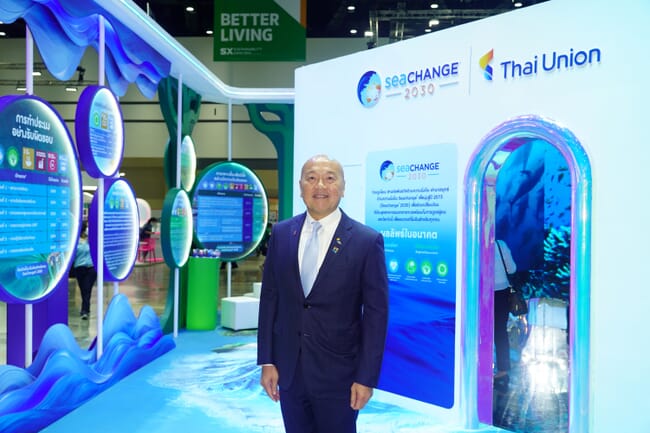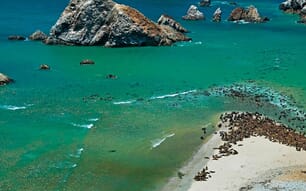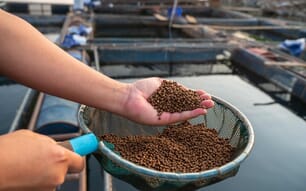
© Thai Union
The company disclosed new achievements and initiatives under its SeaChange 2030 sustainability strategy. These included embedding sustainability into shrimp farming operations and across their wider aquaculture supply chain. The company also reaffirmed its long-term commitment to the United Nations Sustainable Development Goal 14 – Life Below Water.
The Company’s newly released 2024 Sustainability Report details the progress Thai Union has made over the past year to advance responsible sourcing, protect marine ecosystems and build climate resilience across global seafood supply chains.
“Safeguarding the ocean is not just an environmental priority but a shared responsibility and a long-term investment in global resilience,” said Thiraphong Chansiri, chief executive officer of Thai Union Group, in a press release. “Through SeaChange 2030, we are demonstrating what is possible when companies embed sustainability in business strategy. But no single company can achieve this alone, collaboration across sectors and borders is essential.”
Thai Union’s global sustainability framework SeaChange 2030 strategy focuses on delivering measurable progress across people and planet through 11 interconnected commitments. The Company committed to investing USD 200 million by 2030 in initiatives that strengthen traceability, support ocean conservation and reduce emissions.
An highlight from the report includes the launch of Lower Carbon Shrimp Programme, which aims to decarbonise shrimp production and cut Scope 3 emissions tied to aquaculture value chains. Other sustainability highlights included the majority of tuna sourced from MSC and credible Fishery Improvement Projects, a reduction of 21 percent in scope 1 and 2 greenhouse gas emissions and 234 tonnes of plastic removed from oceans and waterways.
“Transparency, science, and collaboration are the cornerstones of SeaChange 2030,” said Adam Brennan, chief sustainability and communications officer. “At Thai Union, we believe sustainability must be integrated into how decisions are made every day, across every part of the value chain.”
As discussions at the UNOC focued on protecting marine ecosystems, mobilising ocean finance and scaling sustainable fisheries, Thai Union urged stakeholders across the value chain to take collective responsibility for the future of the ocean.
In 2023, Thai Union became the first company to sign the Sustainable Fisheries Partnership’s Protecting Ocean Wildlife pledge, committing to identify and reduce the risk of bycatch in high-risk fisheries through the adoption of best practices – including 100 percent observer coverage where possible and public reporting. Since then, governments, collectively representing 15 percent of global tuna catch, together with major retailers, suppliers and food service companies joined the pledge.



